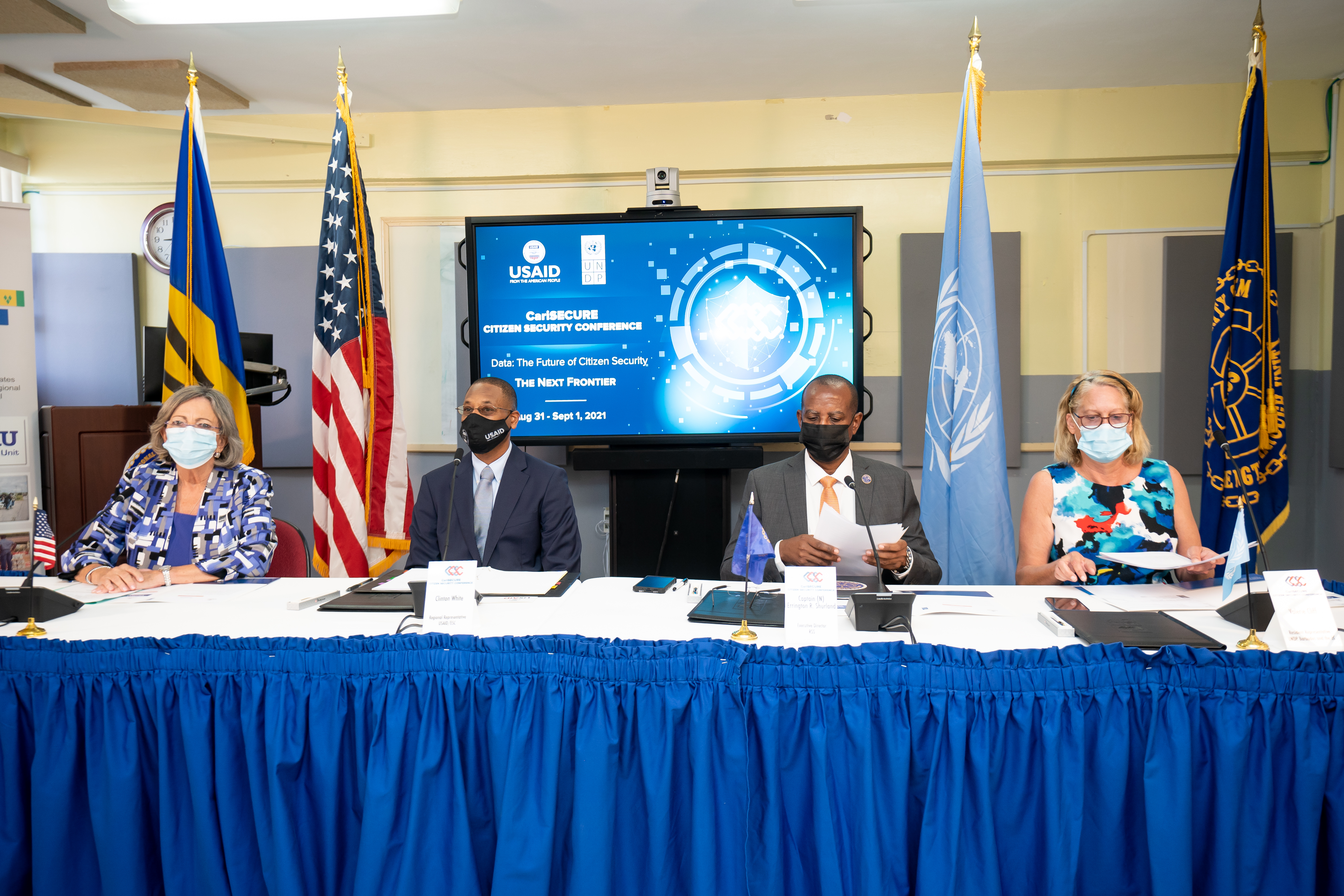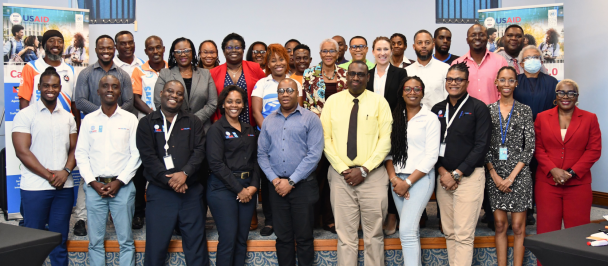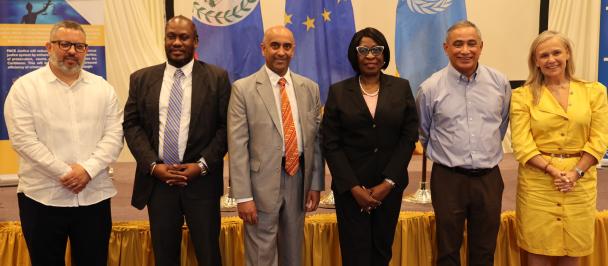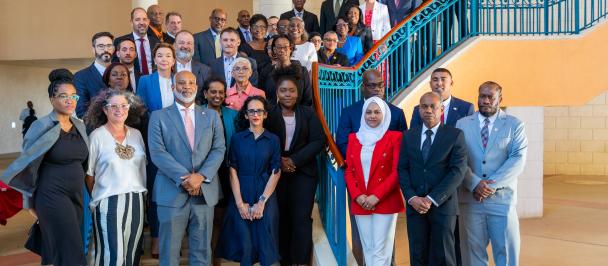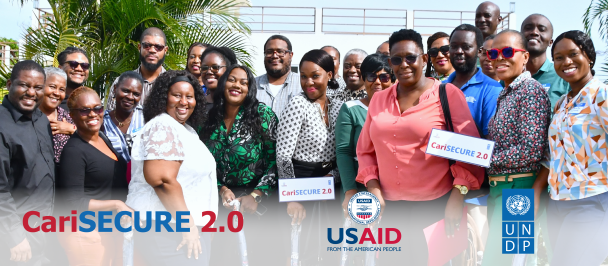Four Agencies, two Memoranda of Understanding and one renewed commitment to strengthening Citizen Security in the Caribbean. This was the highlight of The Strengthening Evidence Based Decision Making for Citizen Security in the Caribbean (CariSECURE) Citizen Security Conference hosted on August 31 and September 1 by the United Nations Development Programme (UNDP) Barbados and the Eastern Caribbean, and the United States Agency for International Development (USAID). The signing ceremonies were the opening events on both days of the two-day conference designed to discuss, examine, and analyse data’s role in the future of regional citizen security, and promote regional collaboration on citizen security both with in-person sessions and virtual dialogues.
The first Memorandum of Understanding signing took place at the Sub Regional Crime Observatory (SRCO) at the Regional Security System (RSS) in Barbados as specially invited guests and the media joined the virtual audience at 9 a.m. Setting the stage for the proceedings, the signing was a part of the opening ceremony which included remarks from the United States Ambassador to the OECS, Linda Taglialatela, as well as USAID/Eastern and Southern Caribbean Regional Representative, Clinton White and the UNDP Barbados and the Eastern Caribbean Resident Representative, Valerie Cliff. On September 1, the second MOU was signed strengthening the USAID-CARICOM IMPACS connection, in support of the CARICOM Crime Observatory and a Crime and Violence Data Warehouse.
Speaking to the renewed relationship, Clinton White stated, “Under the leadership of RSS and IMPACS, we believe that these two mechanisms will fill a critical crime data gap, and support eight eastern and southern Caribbean countries with producing, analyzing, and reporting standardized, timely, and reliable crime and violence data. We look forward to seeing countries, and the region take advantage of these flagship institutions to access and use the data for evidence-based policies and strategies. USAID remains a committed partner to the region in its efforts to address crime and violence.”
The MOU signings officially establish the Crime Observatory at RSS and formalised the relationship between USAID and CARICOM IMPACS who will be implementing the Crime and Violence Data Warehouse for the CariSECURE Project. Speaking on the role of the Crime Observatory, Captain (N) Errington Ricardo Shurland, RSS Executive Director noted, “It is my fervent belief that the Crime Observatory, and the linkages we will continue to make with criminal justice, research and other institutions, will strengthen our ability to understand the driving forces behind our criminogenic environments, and identify opportunities to advance the protection of our people and our land, maritime and cyber spaces.”
This renewed partnership facilitated through the CariSECURE Project will enable the storage and analysis of crime data for the region and support these agencies in the analysis and understanding of crime and violence trends in the region, with a view to improving programmes and policies for crime prevention and detection and creating safer nations and safer citizens.
Valerie Cliff, Resident Representative UNDP Barbados and the Eastern Caribbean, noted that as part of the Multi-Country Office's commitment to supporting the Caribbean achieve SDG16, the CariSECURE Project is designed to improve youth crime and violence policymaking and programming in Antigua and Barbuda, Barbados, Grenada, Republic of Guyana, Saint Kitts and Nevis, Saint Lucia, Saint Vincent and the Grenadines, and the Republic of Suriname using quality, comparable and reliable national citizen security information. She added, "it is important for us to come together as a region to tackle the complex nature of crime and violence. Projects like CariSECURE helps us to build forward better and strengthen the institutional capacity needed to promote peace, justice and strong institutions."
For media queries contact: Shani Leacock – shani.leacock@undp.org

 Locations
Locations